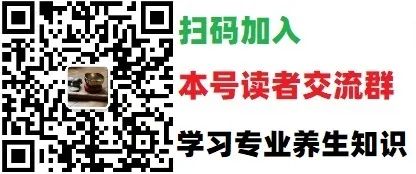Modern medicine believes that conditions like ischemia and anemia are primarily caused by iron deficiency, leading to recommendations for individuals to supplement iron and consume iron-rich foods. However, indiscriminate iron supplementation can have side effects that many readers may not be aware of. For instance, gastrointestinal discomfort, allergic reactions, and certain iron supplements like ferrous sulfate and ferrous fumarate can irritate the gastrointestinal tract, causing diarrhea, abdominal pain, nausea, and vomiting. Some individuals may also experience redness, rashes, and skin itching, with severe cases leading to difficulty breathing.
Moreover, there is the risk of iron toxicity. Most people are unaware that long-term excessive iron supplementation can lead to an overload of iron in the body, which the liver must metabolize. Over time, this can increase the burden on the liver, leading to liver damage and even liver failure. Mild symptoms may include dizziness, headaches, and somnolence.
In contrast, Traditional Chinese Medicine (TCM) offers a variety of safer and gentler methods to address anemia and ischemia. TCM focuses on treating the root cause by adjusting the functions of the organs, allowing the body to enhance its own blood production capabilities.
From a TCM perspective, conditions such as Qi deficiency, spleen deficiency, and Yin deficiency can all lead to anemia. Of course, there are rare cases, such as blood heat, that can also cause anemia, but these are not the focus of this discussion.
Most commonly, spleen deficiency and Qi deficiency are prevalent, so methods that tonify Qi and nourish the spleen are often employed. For example, the Dang Gui Bu Xue Tang (Angelica Blood Supplementing Decoction) uses Huang Qi (Astragalus) to tonify Qi and Dang Gui (Angelica) to nourish blood. Formulas like Gui Pi Wan (Restore the Spleen Pill), Si Jun Zi Tang (Four Gentlemen Decoction), and Du Shen Tang (Single Ginseng Decoction) also have the effect of strengthening the spleen and nourishing the blood.
One reader reported success with simple dietary therapy, such as Yu Ling Gao (Jade Spirit Paste). After suffering from anemia for over 20 years, she began practicing TCM health preservation and started taking Yu Ling Gao last year. After her first health check-up, she was no longer anemic.
What is in this Yu Ling Gao? Isn’t it just Xiyangshen (American Ginseng) and Guiyuan (Longan)? Xiyangshen tonifies the heart and spleen Qi and nourishes the spleen and lung Yin, while Guiyuan nourishes the heart and spleen blood, so it’s not surprising that it is effective. Of course, the prerequisite is to obtain a reliable quality of Yu Ling Gao; if not, you can make it yourself.
Another reader mentioned that she felt weak and had been taking Ren Shen (Ginseng). While taking it, she felt her Qi and blood were sufficient and did not experience anemia. However, once she stopped taking it, she noticeably felt weak and looked pale. Another reader shared about a TCM patent medicine, which I can’t quite recall, called Jian Pi Sheng Xue Ke Li (Spleen Strengthening Blood Supplement Granules), which also showed good results after taking it. These approaches all revolve around the principles of strengthening the spleen and tonifying Qi, which are central themes in TCM discussions about Qi and blood.
Further Reading (click the titles below for links):
- A versatile TCM patent medicine: tonifies Qi, nourishes blood, supplements Yin and Yang, more effective than blood transfusions.
- A famous formula for treating stroke that helps you avoid Parkinson’s disease! No more tremors, walking steadily.
- A well-known TCM patent medicine that unblocks the Qi of the upper, middle, and lower Jiao! No more tinnitus after 10 years.
- High blood pressure surprisingly lowered by a common cold medicine!
- Some TCM insights: facial spots indicate internal stasis; a formula to eliminate stasis will clear the complexion.

